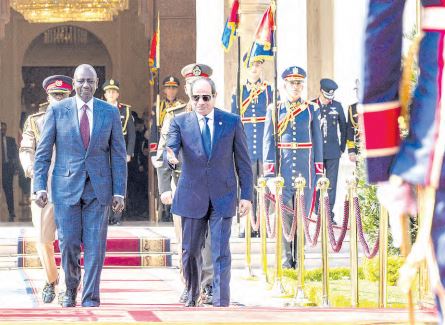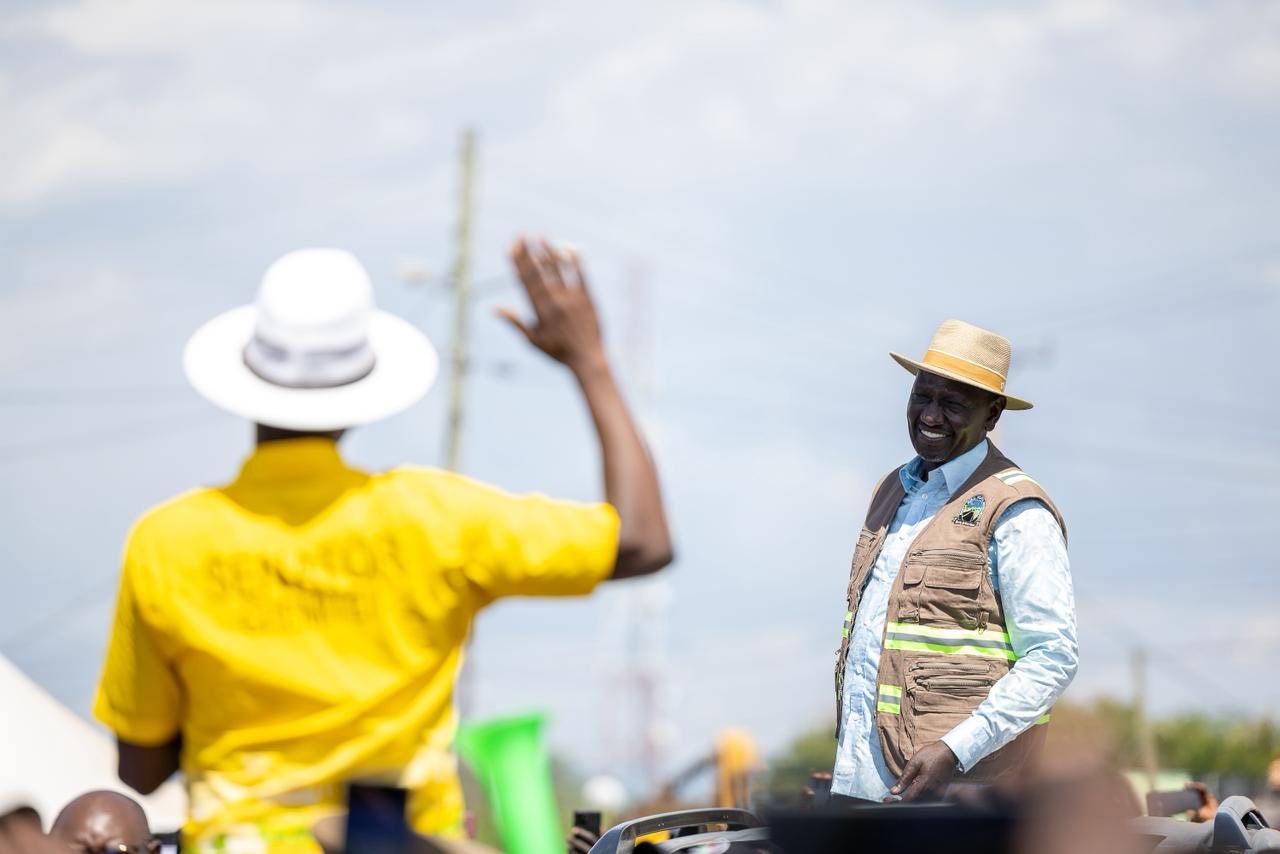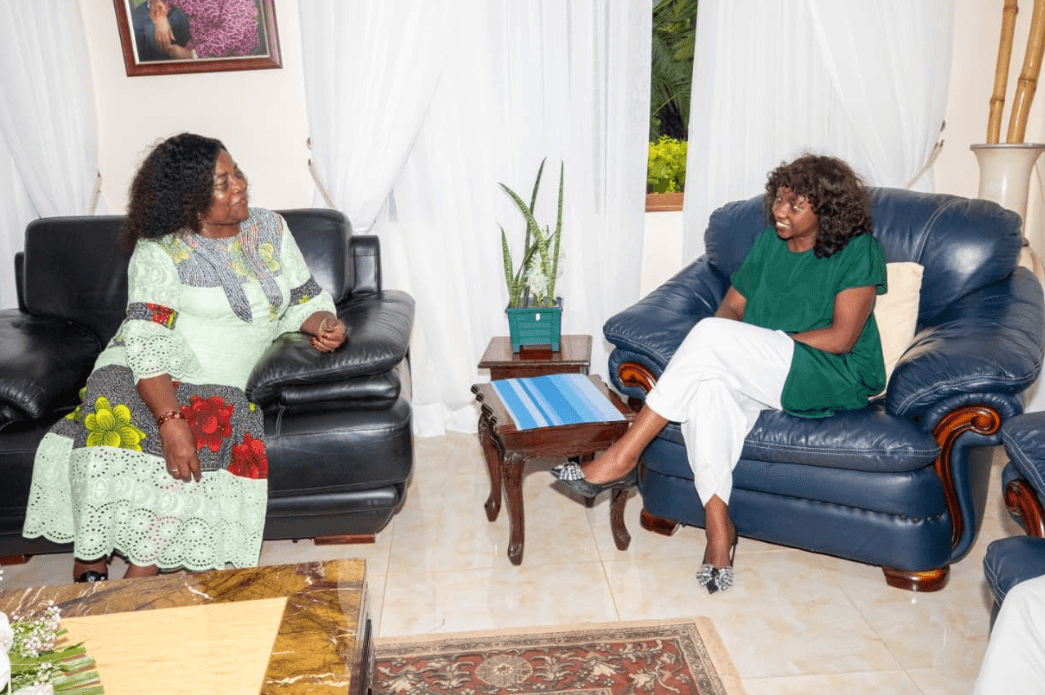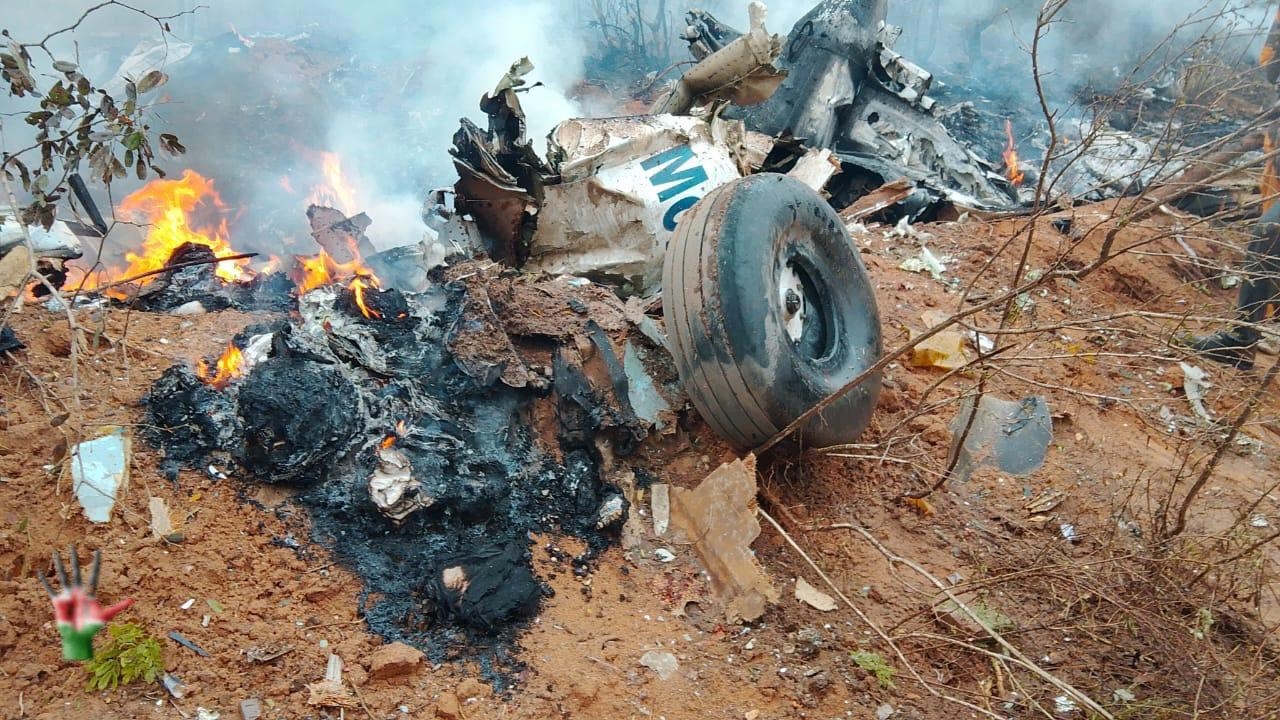
Since assuming office in September 2022, President William Ruto has traversed the globe in a continuing charm offensive. His travels have been a diplomatic coup not only for Kenya but also for Africa in general.
He has emerged forcefully as a clear voice and champion of the developing world’s economic agenda. The President has pushed for favourable trade relations instead of aid facilities.
He has visited more countries since his entry to office than any other president in Kenya’s history. In many of these visits, he has been the guest of the host states.
He has championed the continent as the most viable destination for international investment and hub for global economic collaboration.
He has consistently pushed for the continent to speak with one voice in international fora. When he was elected the chairman of the East Africa Community Heads of States Summit, he launched the agenda of One Continent One Policy position in world economic and political platforms.
His efforts are bearing fruits and today the continent is viewed for the first time as a strategic player in global affairs and geopolitics.
At climate and security world engagements, the continent is now viewed as critical actor and partner instead of its previous role as a supporting player.
The decision to sacrifice resources and send Kenyan Police to lead the international crackdown on terrorist gangs in Haiti was bold and unprecedented. Kenya leads international police in cooperation with Haitian security forces.
Kenya’s actions have been hailed by leading nations and international political players as a game changer for the continent in the diplomatic arena.
During the cold war era, the Third World, especially Africa, witnessed heightened political manipulation by the international powers.
The two superpowers, the US and USSR, determined the actions of their allies and opponents by leveraging their military and economic might.
Between themselves, they established a bipolar political system for the international community. Each country of the developing world belonged to either the East led by the USSR or the West led by the US.
The association originated in and was necessitated by historical ties or emerging strategic interests. The competition for regional control was so cutthroat that the superpowers spared no efforts and resources in pursuit and protection of their spheres of influence.
Even the Non-Aligned Movement championed by the leaders of East Asia could not afford the luxury of neutrality. Matters were at their worst in Europe, where a wall was erected in Berlin to separate the West from East Germany.
The Berlin Wall became the most profound physical embodiment of the world’s diplomatic dichotomy. There was no middle ground. Each country was either ⸻ or. Africa found itself in the midst of this post-World War II meltdown.
As Western Europe aligned itself with the new superpower in Washington, DC, Moscow moved in to compete for control of Eastern Europe, South America and Africa.
The US established the NATO as the USSR negotiated and ratified the Warsaw Pact. NATO allies were driven by the market economy and liberal democracy as their philosophy and ideology.
On the other hand, the USSR pursued political centralism through socialist ideology and nationalist economic philosophy.
The emerging independent African states had to make hard choices in terms of ideological orientation.
Due to strong linkages with their previous colonial masters, the Anglophone and Francophone African countries found themselves leaning towards the West.
Britain and France maintained their stranglehold on their former colonies on behalf NATO. Economic aid and military support were pegged on policies that promoted their strategic interests.
The other three colonial governments of Germany, Portugal and Belgium were weakened by the ravages of the World War II and economic turmoil.
Their colonies were therefore easy prey for the USSR-led Warsaw Pact. North Africa comprised of Islamic states quickly aligned themselves with Arab nations on account of race and the rare commodity of oil. Because of oil and the new state of Israel, the Arab states were cajoled to be allies of NATO. By default, thus, the African states that belonged to OPEC were diplomatically oriented to the West.
During the Cold War, nations promoted global good governance practices. The competing ideologies of liberalism and communism sought to establish themselves as the preferred political and economic models. Both were united in their opposition of fascism and nationalist jingoism.
The experience of the World Wars had demonstrated that racial supremacy was retrogressive and detrimental to human civilisation. As such, debate was focused on creating economic and political blocs for bigger markets and military strength. In addition to NATO, there were the EU, NAFTA, OAU, SADC, EAC, OECD, ECOWAS, BRIX, CARICOM UNASUR, and other groupings.
These bodies were expected to champion regional integration and promote free movement of goods, services and people. They were to exploit the cross-border cultural heritage of populations and leverage economies of scale.
The cross-pollination of political processes was meant to deemphasise nationalist fervour and promote peaceful coexistence of border nations.
The resultant throughput was reduction in interstate wars and regional hostilities. However, with the collapse of the Berlin Wall signalling the end of the Cold War in 1990 and the breakup of the Soviet Union in 1991, the US assumed the role of the global watchdog as the only superpower.
This position naturally invited opposition and resentment from some erstwhile allies in the West and opponents in the East. The push for nationalist movements reemerged and gained traction in the 21st Century.
From the Warsaw Pact, Russia emerged from the ashes of the USSR like a phoenix. It inherited the military and industrial fortunes of the old communist behemoth.
It enjoyed cordial relations with the newly industrialised China and offered serious affront to US hegemony. From NATO, Britain pulled away from the European Union through BREXIT to reassert its influence globally and with its former colonies.
The UK used the Commonwealth platform as the vehicle to lobby and impose its strategic interests on the international arena.
The Asian Tigers and emerging South American bloc economies chose not to play ball with the US. In light of this multipronged attack on its hegemony and pride, political extremists in the US took advantage to champion a narrow nationalist agenda.
Candidate and now US President Donald Trump captured the mood of America with his clarion call, “America First”. President Ruto’s Pan-African agenda is therefore arising at a time when many nations are looking inward. Many states in the developed world are succumbing to their citizens’ demand to focus on their domestic needs.
This contrasts with their international interests, always peddled as strategic. Developing countries have been left to fend for themselves without intervention from the benevolent Western nations.
When genocide occurred in Rwanda, as in the current political upheaval in the DRC, the world political powers kept aloof.
During the Corona-19 pandemic, the developed countries refused to subsidise the cost of the medication from their multinational corporations.
Plagued with their systemic corruption, the African and developing countries had to fend for themselves.
Ruto has taken advantage of the relatively weak economic environment to successfully push a united African voice. It makes political sense that Africa must take advantage of its vast natural resources and huge population to spur economic growth.
His vision of eradicating the lumpen proletariat by uplifting the bottom of the economic pyramid is resonating with the African masses.
The President has been advocating for innovation and technology to outsmart competition in global trade and employment imbalances.
These efforts will revolutionise the continent’s position in world international cooperation and diplomacy












